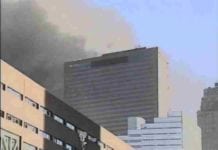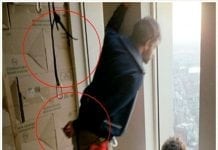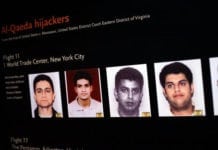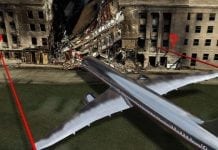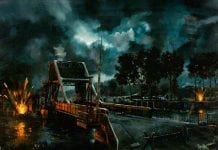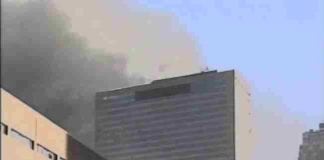Hiroo Onoda was a twenty-year-old man working for the Tajima Yoko Trading Company in Hanokow, China when the Second World War broke out and in August 1942 he returned home to Wakayama in Japan and joined the Japanese Army.
He trained as an officer at The Imperial Army Intelligence School in how to conduct guerrilla warfare, survival techniques and intelligence gathering before being sent to the Philippines, joining the Sugi Brigade (the Eight Division from Hirosaki).
There he was ordered to lead the Lubang Garrison in a campaign of guerrilla warfare and as he prepared to join the action his division commander gave him his final orders.
‘You are completely forbidden to die by your own hand. It make take three years, it may take six years but whatever happens we will come back for you. Until we do and as long as you have one soldier to command you must continue to lead him. You may have to live on only coconuts and if so, that is what you must do. Under no circumstances must you give up your life voluntarily.’
With those words resonating around his soul he left, on December 17th 1944, for Lubang Islands, located between the Philippine Sea and South China Sea, with orders to destroy the airfield, lay explosives at the pier and sabotage the Allied Campaign.
However, soon the Allied Forces had overrun the island and after brief resistance, during which Onoda lost many of his men, his unit were forced to retreat to the inner and remote areas of Lubang in order to regroup.
After several attacks and the loss of many more soldiers Onoda decided to split the remaining men into cells of four.
His group included Corporal Shoichi Shimada aged thirty, Private Yuichi Akatsu, aged twenty-two and the twenty four year old Private Kinshichi Kozuka.
The four lived in self-made shelters with limited ammunition, very little in the way of food ration, the clothes they were wearing and a rifle each.
Between them they survived on coconuts, bananas, fresh rain water and any animal they could catch and kill, including the odd cow owned by a civilian farmer.
All of the cells were either captured or killed over the following year and whilst Onoda had been involved in one or two skirmishes he decided his cell should remain hidden and used only for guerrilla raids on known Allied positions.
But in October 1945 Onoda went alone to the farm for a cow and found notes left by the farmer reading ‘The war ended on August 14th, come down from the mountains.’ The note did not make sense to Onoda as his cell had been fired upon only weeks earlier so the four men decided the note must have been left by enemy soldiers attempting to coax them out into the open.
They didn’t fall for it and remained hidden. Many times over the next few years islanders tried to contact Onoda and even flew an aircraft over the mountain region dropping leaflets depicting the Japanese Surrender Order signed by General Yamashita of the Fourteenth Area Army, but the men believed this also to be a hoax.
Presumably the letters and photographs from friends and relatives at home in Japan were also not enough to persuade Onoda and his men and Islanders repeatedly called out over loudspeakers in areas all over the mountains but Onoda and his men responded only by firing on them.
Nothing made them believe the war was really over.
Year after year the four men eked out their existence and fired upon villagers or holidaymakers who stumbled upon the group, believing them to be enemy soldiers in disguise.
One day, in September 1949, the resolve of Private Yuichi Akatsu was exhausted and he managed to successfully walk away from the others and survived alone for six further months in the jungle before he eventually surrendered.
The other three, who presumably had found wild cannabis plants growing in the regions given the state of their paranoia, regarded this as a security leak and, sure enough, when Akatsu later returned with news the war really was over after all, they shot at him.
In June 1953, a full eight years after the war had formally ended and everyone had gone home, Corporal Shoichi Shimada was wounded in a skirmish with a search party and despite having no medicine or first aid equipment his leg injury slowly healed although he finally died nearly a year later in May 1954 after attacking local fisherman.
They returned fire and killed him on the beach leaving just two men remaining. And this is how it stayed over the next eighteen years with both men hiding out on the remote island waiting for their next orders from The Imperial Army, all the time reminding themselves of their divisional commander’s final words; ‘whatever happens, we will come back for you.’
The two men were officially declared dead in December 1959 but in October 1972, at the age of fifty-one years old Private Kinshichi Kozuka, was killed by a Philippine army patrol. His discovery lead to speculation that Onoda may also still be alive and efforts were renewed to find him and put an end to the one-man world war he was waging.
Search parties were dispatched but Onoda managed to remain hidden. That was until a Japanese student called Norio Suzuki announced to his friends he was going to travel the world to find ‘a Panda, the abominable snowman and Lt Hiroo Onoda,’ and where so many others had failed, he actually succeeded.
He tried to convince Onoda the war had been over for many years but failed to persuade the ageing soldier.
However, Onoda had become weary of being alone and made one concession. He said he would return home on the condition that his former commanding officer ordered him to. Suzuki travelled back to Japan and luckily found Major Taniguchi was still alive.
The former officer agreed to return to Lubang Islands and on March 9th 1974 Major Taniguchi formally ordered Onoda to cease all combat duties with immediate effect and the weary mountain soldier came down from the hills.
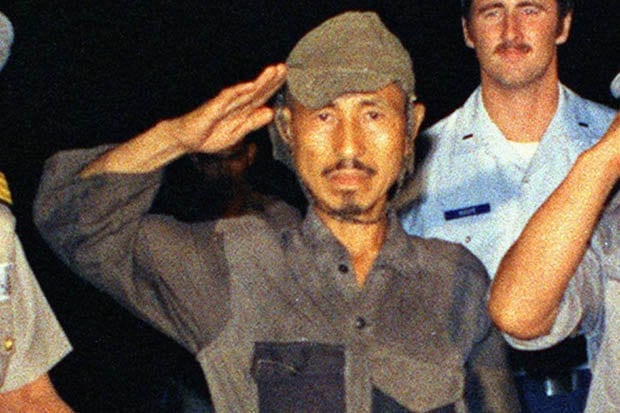
For a little while the news failed to sink in properly but when it did Onoda said ‘We really lost the war? How could they have been so stupid.’
Presumably the irony of those words being uttered by a man who had spent thirty years living under a rock, for no reason at all, was lost on Onoda, but there was worse to come and the man himself described the moment many years later.
‘Suddenly everything went black and a storm raged inside me. I felt like a fool for having been so tense and cautious on the way down here. Worse than that, what had I been doing for all of these years?
But gradually the storm subsided and for the first time I really understood my thirty years of guerrilla warfare were over. It was the end. I pulled back my rifle bolt and emptied it of shells.
I eased off the pack I always carried with me and laid the gun on top of it. Would I really have no more use for the rifle I had polished and cared for like a baby all these years? Or Kozuka’s rifle, which I had hidden in a crevice in the rocks?
Had the war really ended thirty years ago? If it had, what had Shimada and Kozuka died for? If what was happening was really true then wouldn’t it have been better if I had died with them?
During their thirty years on the Island Onoda and his men had killed at least thirty Filipinos and had wounded over one hundred more.
But after formally surrendering to the Philippine President Ferdinand Marcos he was officially pardoned and allowed to return to Japan as a national hero, receiving world media attention as he arrived.
But, as expected, he soon found life in Japan to be very different from the one he left behind all those years previously so he moved to a remote farm in Brazil where he wrote his memoirs entitled ‘No Surrender, My Thirty Year War.’
He travelled back to Lubang Island in 1996 to lay a wreath at the war memorial before marrying a Japanese lady and returning to his homeland to fund a nature reserve camp for children.
Extract from Urban Myths & Legends by Albert Jack
Sadly, Hiroo Onada died in 2014 at the grand old age of ninety-one-years-old. The story we have all heard about the lone Japanese soldier, who refused to believe the war was over and was living in a jungle, was no myth or urban legend after all, it was true. – Albert Jack
Albert Jack AUDIOBOOKS available for download here

More Urban Legends with Albert Jack





